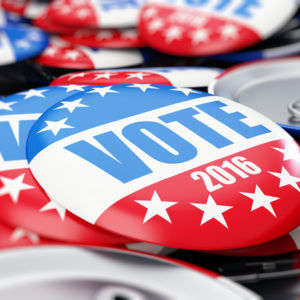Given the regular flow of stories about the decline of the American community and the rise of the isolated individual, Americans should be celebrating a recent report by the Pew Research Center that found that multi-generational shared living has been steadily growing over the past decade and increasing in prominence since the Great Recession.
The news that 32 percent of the adult population in 2017 — almost 79 million —lived in a shared household should be greeted with great excitement because bringing people of different generations together in close and intimate settings has the potential to spur real civic engagement and improve the nation’s democratic deficit — that is, the general apathy and low rates of participation in politics seen today in America.
One way to promote better civic behavior is through the close and repeated influence of elders. Because different generations are now residing together in greater numbers than decades ago, it is very possible that the more politically minded older Americans will hold sway over younger Americans, influencing them about politics and political engagement including the duty to vote.
Data from the 2016 American National Election Study (ANES) clearly identify various possibilities for improved civic behavior.
The study has long asked, for instance, if one sees voting as a “duty” or a “choice.” If we look at younger Americans who were between 25 and 35, in the 2016 election, only 36 percent of them saw voting as a “duty.” The number jumps to 58 percent for Americans who were over the age of 60 — a non-trivial difference.
If we look at other questions in the ANES, it becomes clear that older Americans are more trusting. Forty-nine percent of older Americans answered that they trust other people “most of the time” or “always.” With younger Americans, the number drops to 37 percent. It is hard to cure the nation’s democratic dysfunction if younger citizens do not trust others, or don’t see voting as a duty.
Being civic is more than trust and duty. It also means being informed. The ANES clearly demonstrates that there are significant differences in political knowledge between younger and older Americans.
In terms of knowledge, both age cohorts were able to identify Chief Justice John Roberts, but when it came to other well-known politicians, numbers diverged significantly in some cases. For example, former Vice President Joe Biden was less known to younger Americans than to older citizens (81 percent to 93 percent), similarly fewer young citizens knew about Russian President Vladimir Putin (77 percent to 89 percent).
The gaps widened even more for German Chancellor Angela Merkel (33 percent to 51 percent) and House Speaker Paul Ryan. (42 percent to 65 percent). While simple factual recall is not a measure of intelligence, it is hard for younger Americans to understand politics, policy and engage in discussions when so many of them are unaware of the major players and their policy positions.
Low interest in politics does not prevent one from voting, but it is a determinant of civic health. ANES data make it very clear that younger and older Americans are not in sync when it comes to levels of political interest. Sixty-two percent of younger Americans say that they are “very” or “somewhat interested,” compared to 76 percent of older Americans. Relatedly, 54 percent of younger Americans claim to follow politics “fairly” or “very closely” compared to 72 percent among their elders. In addition, 57 percent of Millennials “agree somewhat” or “strongly” that they understand most important political issues — compared to their seniors at 70 percent.
None of these surveys are absolute, and some questions show generational agreement and even reveal that younger cohorts are significantly more active on social media when dealing with political questions. Nevertheless, the data make it clear that younger Americans do not see voting as a duty, are far less knowledgeable about politics and policy, and have lower levels of interest and engagement compared to older cohorts.
Living together is one of the most powerful forms of influence, and we should be quite happy that these new trends in the cohabitation of younger and older Americans have begun to develop. It is no surprise that places like Italy have traditionally had much higher levels of engagement among younger generations who all reside with older generations for longer periods of time.
These changing intergenerational living arrangements may well be a cure for our ever growing government dysfunction, which stems in part from apathy, ignorance and disengagement. It is time for older generations to encourage younger cohorts to live up to their civic duty.

